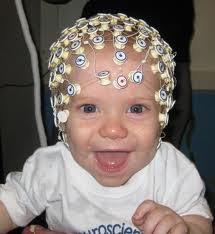 While sitting in the audience and taking notes during the recent IASD conference in Berkeley, I found myself marking several instances where something the presenter said triggered my dystopian imagination. I confess to being a long-time fan of science fiction and fantasy stories about frightening future worlds controlled by alien invaders, zombie hordes, inhuman technologies, totalitarian governments, and/or rapacious capitalists (I made a list of some favorites below). I enjoy these stories as literary nightmares: vivid, emotionally intense simulations of real psycho-cultural threats, looming now and in our collective future.
While sitting in the audience and taking notes during the recent IASD conference in Berkeley, I found myself marking several instances where something the presenter said triggered my dystopian imagination. I confess to being a long-time fan of science fiction and fantasy stories about frightening future worlds controlled by alien invaders, zombie hordes, inhuman technologies, totalitarian governments, and/or rapacious capitalists (I made a list of some favorites below). I enjoy these stories as literary nightmares: vivid, emotionally intense simulations of real psycho-cultural threats, looming now and in our collective future.
At the IASD conference I realized I could turn this interpretive process inside out. I began to look at dream research from the genre perspective of dystopian fiction. What would an uber-villain in such stories find appealing in state-of-the-art dream research?
Let me be clear, these are my own shadowy speculations and in no way reflect anything directly said or intended by the presenters!
Sleep paralysis induction. There is now a proven technique for inducing the nightmarish experience of sleep paralysis–that is, causing someone to enter a condition in which their bodies are immobilized but their minds are “awake” and vulnerable to terrifying images, thoughts, and sensations. I can imagine this technique being put to nefarious use by military intelligence agents, state-controlled psychiatrists, and cybernetic overlords. The ability to trap a person within a state of sleep paralysis would be a horribly useful tool for anyone bent on total mind control.
Transcranial magnetic stimulation. This technology enables the direct manipulation of neural activity during REM sleep, targeting specific regions of the brain. If the technology were refined with malevolent purposes in mind, it could potentially disrupt people’s normal dreaming patterns, controlling what they do and don’t dream about. An evil scientist could thus invent a kind of anti-dream weapon, a magnetic beam aimed at the head of a sleeping person and programmed to stun, control, or destroy.
Disrupting PTSD memory formation. Trauma victims can diminish the symptoms of PTSD if they perform a series of distracting cognitive tasks with six hours of the trauma, thereby disrupting the formation of long-term traumatic memories. The future militarization of this method seems inevitable. Anything that alters memory can be used by evil governments to manipulate people against their will, either to do things they don’t want to do (black ops soldiers) or forget things that have been done to them (massacre survivors).
Remote monitoring of a person’s sleep. The Zeo sleep monitoring system (which I’ve used for three years) has now developed a wireless version that instantly relays the user’s sleep data from the headband via a bedside mobile phone to the Zeo database. This kind of technology opens the door to real-time remote monitoring of people’s sleeping experience, and potentially the ability to reverse the flow of data and influence/shape/guide people while they sleep. If enough people were linked into the system, it could serve police states as a valuable tool in 24-hour mind-body surveillance.
My interest in these morbidly malevolent scenarios is not entirely theoretical. Over the past few years of developing the Sleep and Dream Database I’ve been thinking of the darker possible applications of this technology, less Star Trek and more Blade Runner. If it’s true, as most researchers at the IASD are claiming, that dreams are accurate expressions of people’s deepest fears, desires, and motivations, then it’s also true a real potential exists to put that dream-based information to ill use.
Projecting even farther forward, I wonder if there might be some kind of future inflection point where the amount of data we gather suddenly reveals much bigger patterns and forms of intelligence than we had previously been able to recognize or scientifically document. What would happen if this leap of knowledge enabled our collective dreaming selves to somehow unite to challenge the dominance (one might say totalitarian regime) of waking consciousness?
I think about all this as I continue building up the SDDb, trying to make good decisions and avoid the nightmare pitfalls. Dystopian fantasies help me clarify what’s at stake, where the dangers lurk, and how the future may unfold.
You may be familiar with Arthur C. Clarke’s 1953 science fiction short story “The Nine Billion Names of God.” If so, you’ll understand why, as I work on developing new database technologies for dream research, I meditate on the phrase, “The Nine Billion Dreams of God.”
Dystopian Films and TV: Blade Runner, 12 Monkeys, Children of Men, Logan’s Run, The Matrix, Soylent Green, V for Vendetta, Battlestar Galactica, The Prisoner, Gattica, Terminator, Alien, Total Recall, 28 Days
Dystopian Novels: The Hunger Games, Fahrenheit 451, Neuromancer, 1984, Brave New World, The Time Machine

Trapping people in nightmares certainly has a long history in science fiction and fantasy books, movies, and television. Just off the top of my head it has come up in Star Trek (several varieties) Chronicles of Narnia (briefly) the Freddy Kruger movies, Heroes, and Buffy the Vampire Slayer.
You might also like “The Chronicles of Thomas Covenant the Unbeliever”, a trilogy by Stephen R. Donaldson. A man fights to resist believing in the demands of people in his lucid dreams, who insist that he alone can save their world. If he does believe, then what he’d rather think of as a wet dream will turn out to be rape, and he will have to live with that unbearable truth. But if he does not believe, the world that he refuses to save might well turn out to be his own life. Do his actions in lucid dreams have consequences or not?
I should also mention that I once talked to a crazy guy who claimed that the government was already using technology like this, blocking people’s dreams and replacing them with hypnotic commands. The kicker was that he also claimed that the same agency defused those who found out by driving them crazy and/or to addictions.